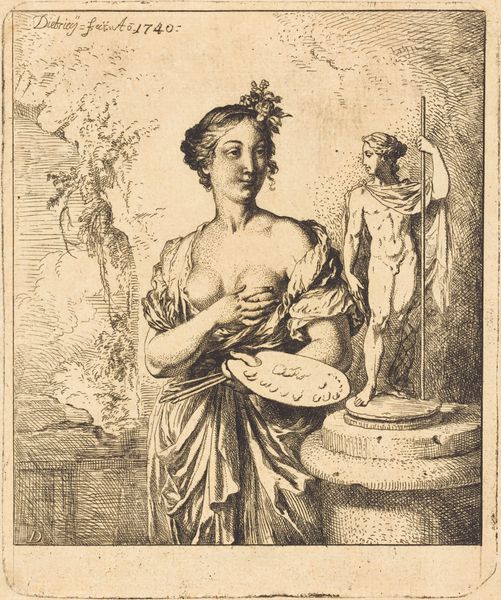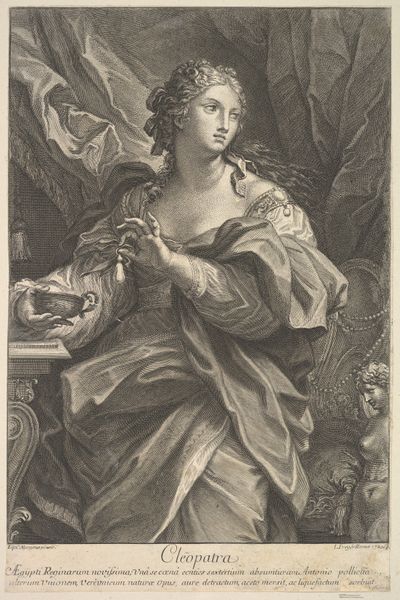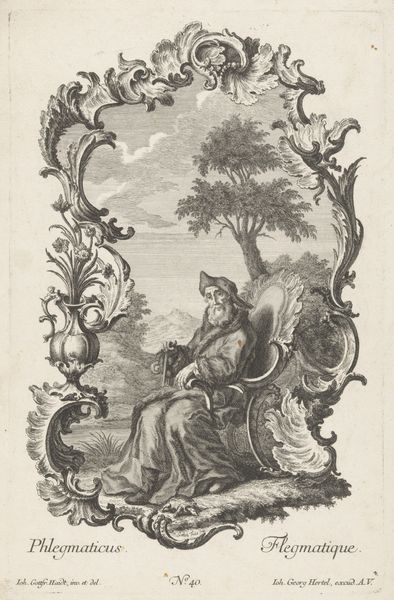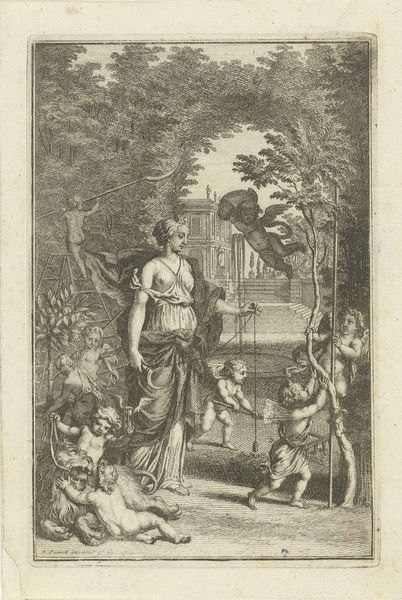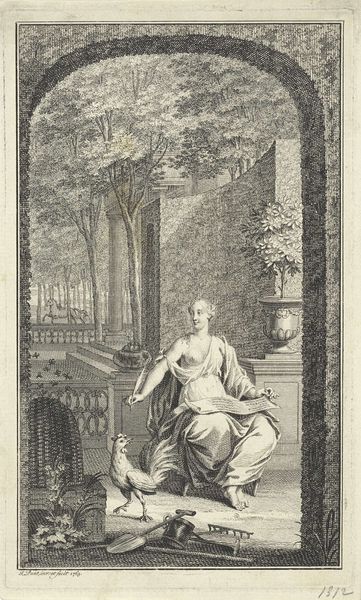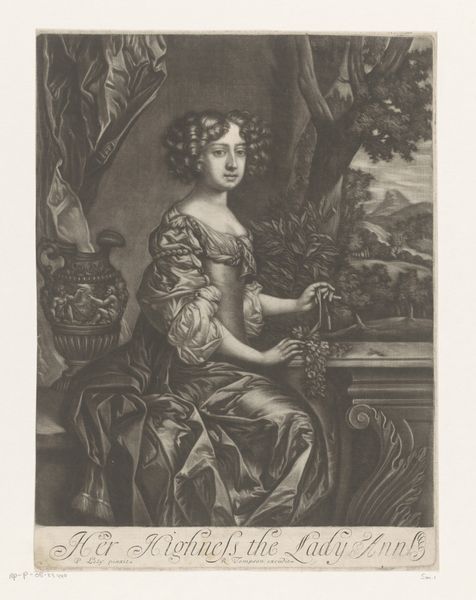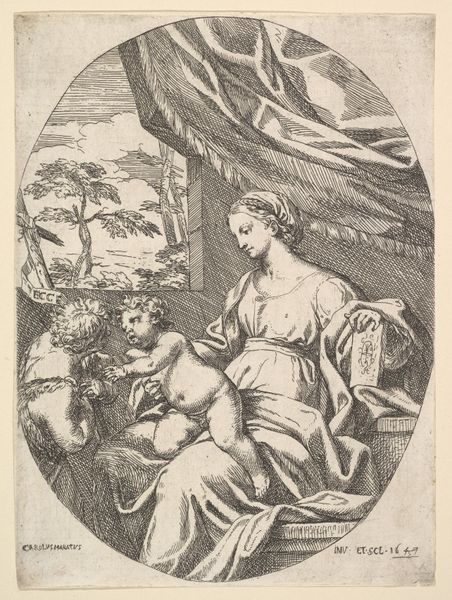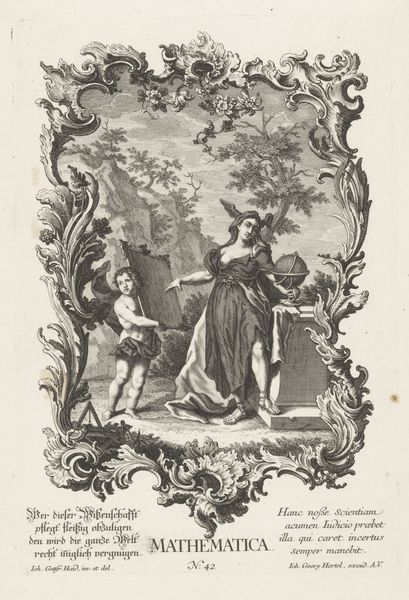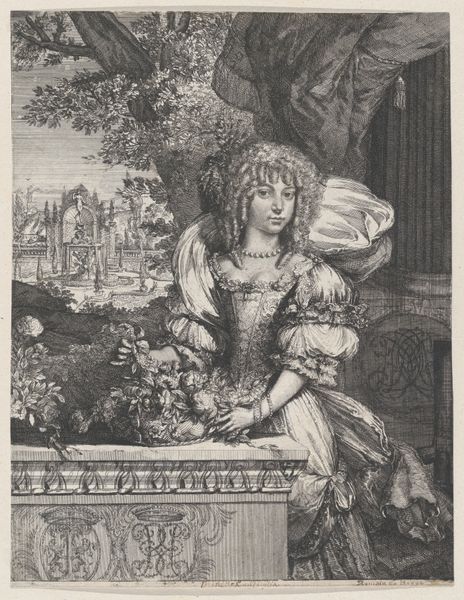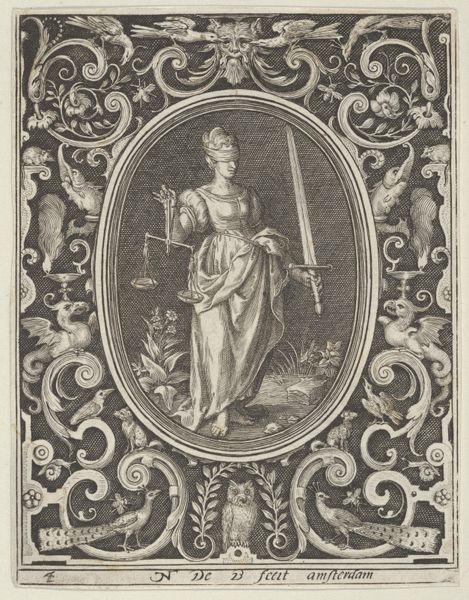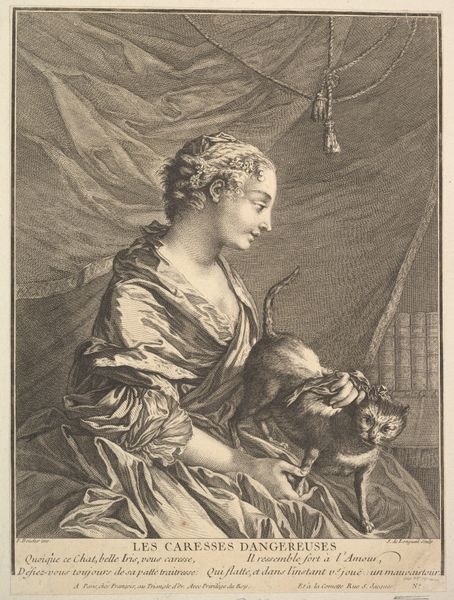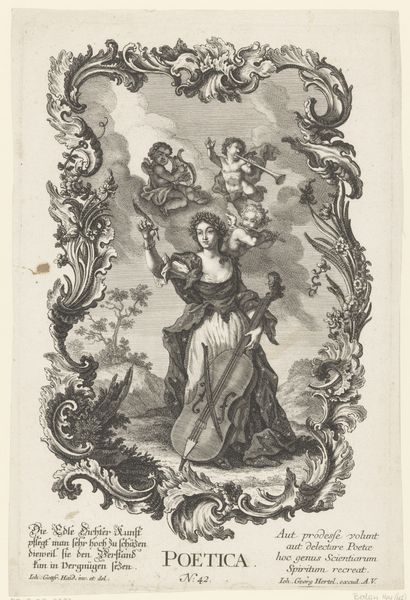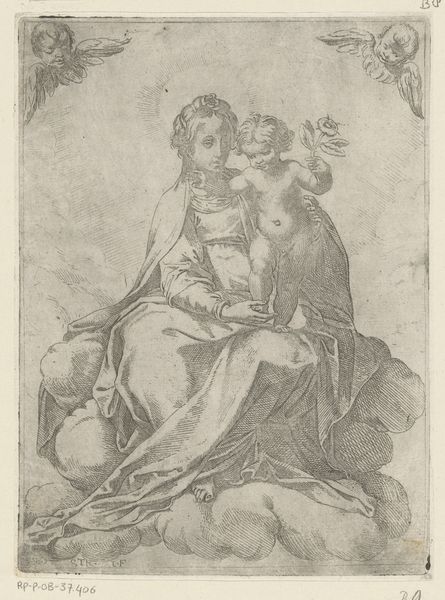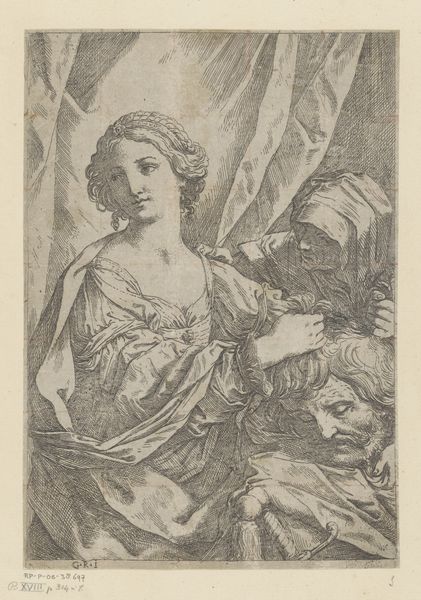
Die Heilige Euphemia, mit Kreuz und Palme vor einem Altar stehend
0:00
0:00
drawing, gouache, paper, ink, pencil
#
drawing
#
gouache
#
figuration
#
paper
#
ink
#
pencil drawing
#
pencil
#
15_18th-century
#
history-painting
#
rococo
Copyright: Public Domain
Johann Wolfgang Baumgartner created this drawing of Saint Euphemia standing before an altar sometime between 1724 and 1761. During this time, the representation of female saints was a potent blend of religious reverence and cultural ideals about femininity. Saint Euphemia, here rendered with a delicate grace, holds a palm symbolizing martyrdom and a cross representing her faith. Note the lions at her feet, which traditionally represent her miraculous escape from being devoured in the arena. This iconography, while rooted in religious narrative, also tells us about the roles women were expected to embody: piety, resilience, and purity. Looking closely, you might consider how Baumgartner’s work contributes to the complex image of women in the 18th century as both figures of veneration and subjects within a patriarchal society. The drawing becomes a space where faith, gender, and power dynamics subtly converge, inviting us to reflect on the historical construction of female identity.
Comments
No comments
Be the first to comment and join the conversation on the ultimate creative platform.
